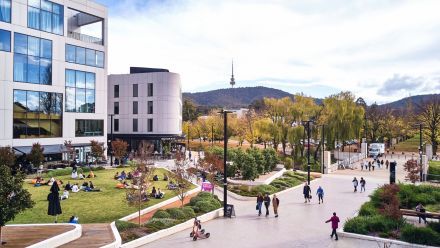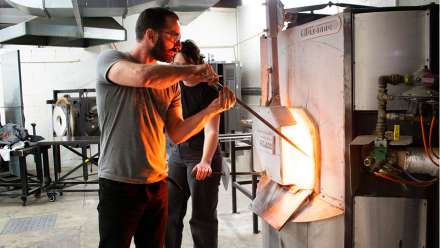Engineering students advance humanitarian solutions
Advancements in technology and engineering often remain out of reach for the most vulnerable communities. For those in developing countries and remote communities, engineering solutions could be a lifeline to better access to clean drinking water, stability and safety, and protections against extreme weather brought about by climate change.
The newly established McCusker Prize in Humanitarian Engineering recognises undergraduate students striving to create social impact through humanitarian engineering, a field that provides a connection between engineering and well-being. The prize is made possible through the generous support of the McCusker Charitable Foundation, which aims to improve human health by supporting research and innovation.
ĚěĂŔ´«Ă˝ National University (ANU) Engineering student Nicholas Bull won the 2023 McCusker Prize for his research on water purification. Nicholas engaged in two research projects to improve water quality, reduce water-borne bacteria and improve health outcomes for households, hospitals, and schools in Timor-Leste. His work in collaboration with Abundant Water and Engineers Without Borders Australia investigated the effectiveness of portable ceramic water filters in treating contaminated ground and surface water. A second project involved the design and construction of an experimental configuration for a hollow fibre membrane filter. Nicholas says the recognition and encouragement provided by the McCusker Prize have bolstered his drive to focus on humanitarian engineering after graduation.
A team of ANU School of Computing students were also awarded the 2023 McCusker Prize for their development of FireApp, which enables the rapid deployment of resources and assets during the early stages of bushfires when intervention has the highest likelihood of success.
Technical Lead of the project Ben McLean specifically sought out such a project to work on because of its humanitarian and social aspect. “Our project being recognised and supported by ANU and the McCusker Charitable Foundation has helped secure the future of FireApp. For that I am grateful,” says Ben.
Through their company, Emergiq, the team hope to expand the app to help with other natural disasters, such as floods and earthquakes. Their aim is to maximise emergency resources and minimise the human and environmental cost of natural disasters.
Through supporting research and innovation,the McCusker Prize is ensuring that researchers who want to bring engineering solutions to communities who need them most are empowered to do so.
This award has provided me with the opportunity to conduct a research trip to Timor Leste in 2024. This will generate a deeper understanding of the context in which the filters are used, helping to identify the most appropriate experimental approaches and maximise the humanitarian impact of our teams’ work.
- NICHOLAS BULL


